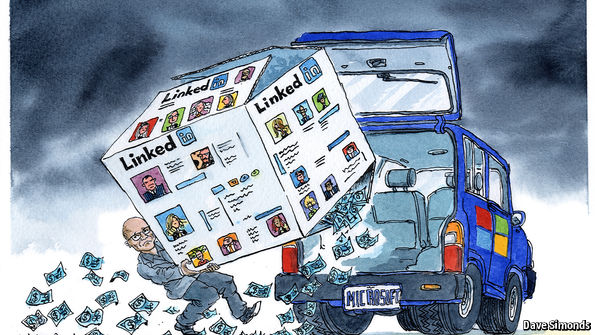Microsoft’s purchase of LinkedIn is one of the most expensive tech deals in history. It may not be one of the smartest

“IMAGINE a world where we’re no longer looking up to tech titans such as Apple, Google, Microsoft, Amazon and Facebook...because we are one of them.” So wrote Jeff Weiner, boss of LinkedIn, in an open letter on June 13th. Not much imagination is necessary. Microsoft had just announced it would pay $26.2 billion to buy the professional social network, making it the third-largest acquisition in the history of the tech industry. The deal was accompanied by substantial promises from Mr Weiner and Microsoft’s boss, Satya Nadella, that the deal would transform businesses’ and workers’ productivity worldwide. Those pledges seem fanciful.
Microsoft is paying a high price for a firm that has suffered its fair share of setbacks. Although LinkedIn is the largest professional social network by far, with around 430m registered users and 100m visitors to its site each month, some analysts have questioned how much bigger it can become. LinkedIn makes most of its money by selling subscriptions to corporate recruiters, who prowl through its database of executives looking for prospective employees. Revenue growth has been slower than expected, and rolling out new businesses and improving existing ones has proved pricey.
Comments
Post a Comment